

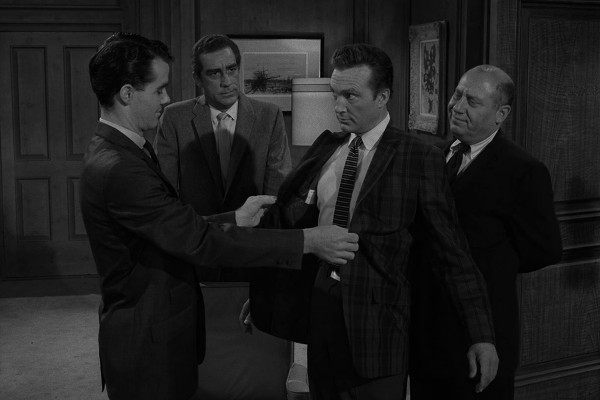
The only story to be remade for both revival series, with a gender-reversed and quite tackily-made Dead Woman's Shoes airing in 1985, and a version that didn't credit original writer Charles Beaumont, Dead Man's Eyes, airing in 2002. The latter does actually make a hokey concept - the wearing of a murder victim's shoes makes the wearer become that person - more palatable as it's adjusted to spectacles and the final vision of the deceased.
However, the original works far better than either remake, largely because it's directed by Montgomery Pittman almost as a pulp noir. Filmed as a realistic drama the inherent silliness of the central concept may have undermined it. However, stylised as some form of Cagneyesque gangster thriller of the 30s, it brings out all the inherent potential of the far-out concept. Although credited only to Beaumont, OCee Ritch had involvement in writing at least one draft of the episode. In this instance, it wasn't due to Beaumont's deteriorating health, which still had to manifest itself, but because Beaumont, a prolific worker, had taken on too many assignments and couldn't complete them all.
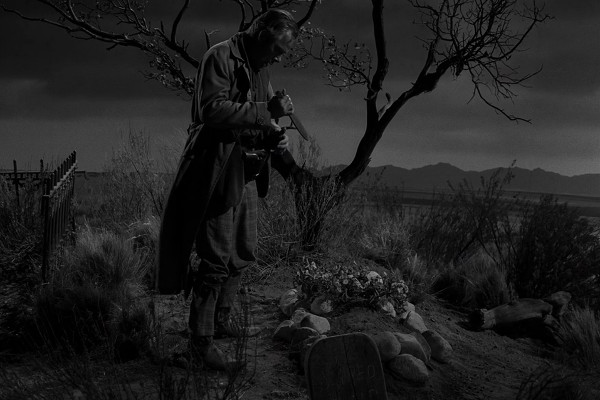
The Twilight Zone's most authentic Western, featuring legitimate genre stars Lee Marvin, Lee Van Cleef, James Best and Strother Martin. It's also a ghost story, which has its scares, and it's charmingly all told in a studio. All concerned give full legitimacy to the piece, which absorbs and has a sense of reality not present in every episode. The actual basis of the story is said to be an old legend even older than the time in which this was set, but it works, and works well.
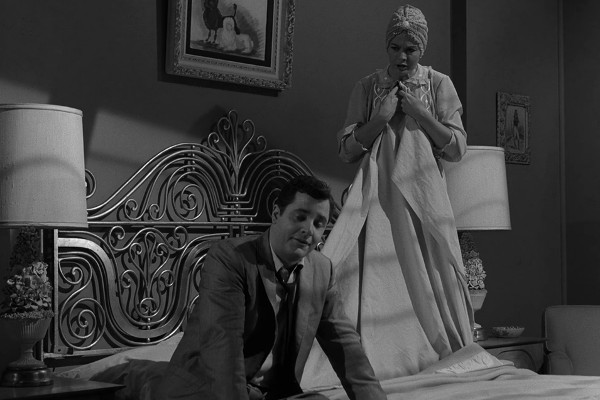
One of the Zone's most psychologically disturbing episodes, as a man awakes to find that no one in his life recognises him, almost as if he never existed. Writer Charles Beaumont again mixes in some of his customary dream plots, following on from such works as Shadow Play. It's a classic episode with a striking central performance by Richard Long, even if it does contain one big plot hole: if all trace of his life is erased, how does he still have a car parked outside his house?
Those interested in the career of Charles Beaumont may like to seek out the 2010 documentary Charles Beaumont: The Short Life of Twilight Zone's Magic Man. It appears to be very much a labour of love as the quality, particularly the sound, is hugely variable, and it's very much an amateur production. However, friends, colleagues and family all give insight into Beaumont's career, including the illness that began to age him prematurely, causing his death by age 38. Harlan Ellison is one of the contributors, and, as we saw in the 1980s Twilight Zone, he is customarily forthright, alleging that Rod Serling was a "good journeyman writer" who "wasn't fit to carry Charlie Beaumont's pencil case".
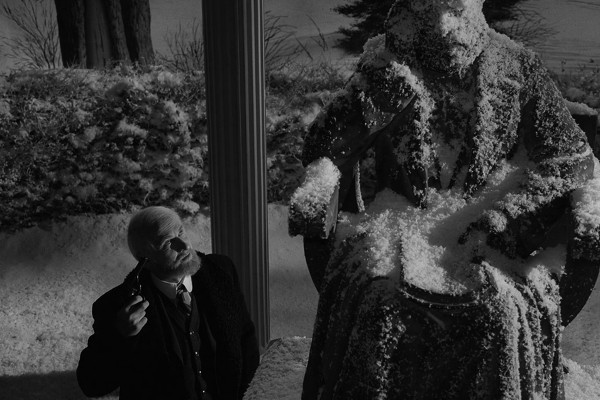
A sentimental Christmas story (broadcast in June) which takes the base spirit of It's A Wonderful Life by having the ghosts of a retiring professor's students come back to tell him his life meant something. The teary-eyed sincerity is laid on thick, and could have perished in lesser hands, but thanks to an expectedly brilliant lead performance by Donald Pleasance this is touching stuff. As seen before in the series, the concept of suicide is surprisingly frequent, and the sight of Pleasance's gentle professor attempting to blow his brains out is one so shocking it almost makes you overlook the fact that the school contains the poshest and oldest students known to man. This was a fine season closer to a very fine season, after which problems with achieving sponsorship kept it off the air for longer than usual...
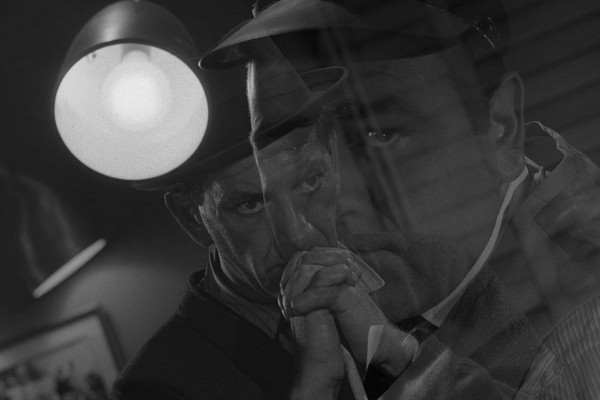
Jack Klugman returns to the series as a pool obsessive determined to beat a long-dead former great. Klugman and Jonathan Winters play off each other extremely well in an intense episode, competing as equals. The episode was remade in 1989 as part of the first revival series, changing the dynamic in terms of race and age. It was perhaps more believable that a man in his early twenties (Esai Morales) would eschew all social life in favour of practising pool, as opposed to man in his late thirties, who, with all respect to Klugman, looked older.
However, Klugman was a class act, and the monologues and speeches that make up the screenplay are better served by the old style of the 1960s production, as opposed to the new version which attempts a more naturalistic bent. What's also curious is that the deceased "Fats Brown" is more menacing in the remake, with challenger Jesse Cardiff more naïve and hungry rather than bitter and ungracious. What makes the remake so important to the discussion here is that it features the original ending planned by writer George Clayton Johnson, allowing viewers to compare it with the substituted ending here. While the alternate ending has its virtues, it's far more mundane and less twist-orientated than a typical "Twilight Zone" ending... something which could be said for a lot of the 80s episodes.
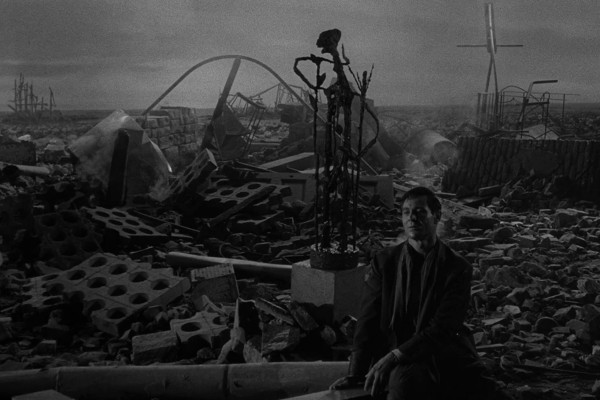
Joseph Wiseman stars in an episode just ten months before he would hit cinema screens as the titular villain in Dr. No. A millionaire businessman who builds a nuclear shelter just to trick three enemies that they're the sole survivors of a nuclear war, it's a fantastic conceit by Rod Serling. There's actually no fantasy or SF element here, as everything could conceivably take place. The final plot twist won't be discussed here to avoid some form of spoilers (though the image above is a bit of a giveaway) but this is a fine entry to the series.
The entire practise could be considered a cut and shut of The Shelter and season one's Time Enough At Last, but there's more to this one than that. It's actually hard not to feel for Wiseman, a man consumed by his own bitterness against a teacher, a reverend and an old army colonel. If there's a complaint it's that, with one of Serling's wordiest scripts, Katherine Squire can sound as if she's reciting as the teacher. However, the production team must have been struck by her performance, as she was brought back for the opening episode of season four.